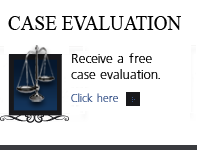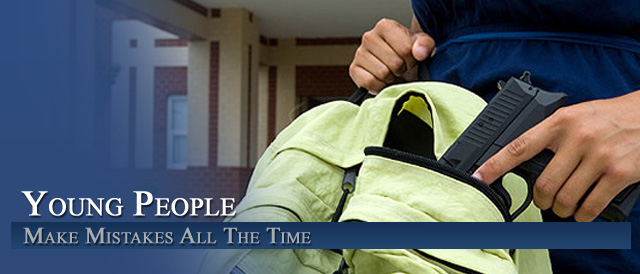
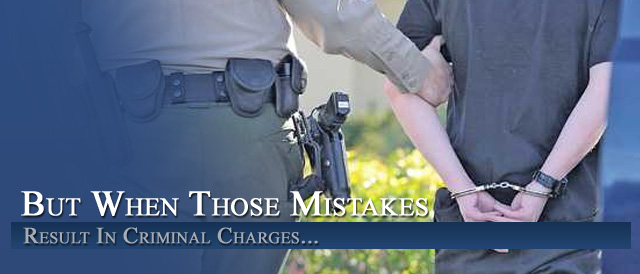
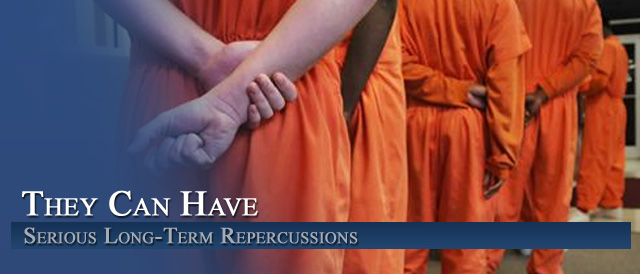
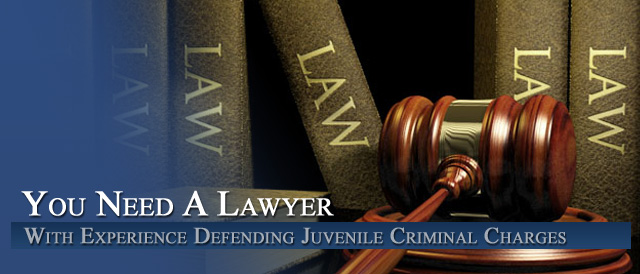
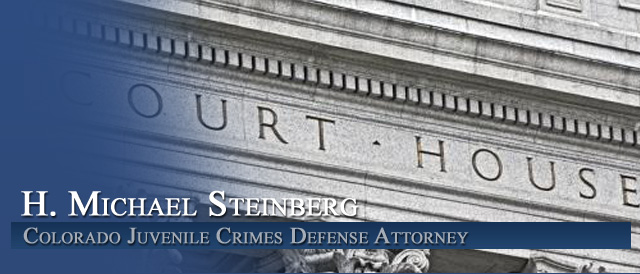
Colorado Criminal Law – Understanding Searches Of Juveniles In Schools
By H. Michael Steinberg Colorado Juvenile Crimes Criminal Defense Lawyer
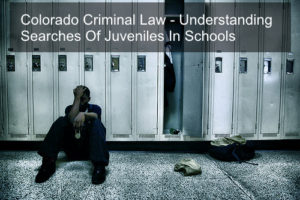 Colorado Criminal Law – Understanding Searches Of Juveniles In Schools – One thing becomes very clear when you’re a kid. You don’t have the same rights as adults. This rubric applies especially to student’s rights under Colorado Juvenile law in the area of the searches of students.
Colorado Criminal Law – Understanding Searches Of Juveniles In Schools – One thing becomes very clear when you’re a kid. You don’t have the same rights as adults. This rubric applies especially to student’s rights under Colorado Juvenile law in the area of the searches of students.
Colorado law regarding searches of students on school grounds and student locker searches, can sometimes be a minefield of confusion. However, some very important basic rights must be understood.
Student searches can be performed in many contexts, but even, as noted, though the constitutional rights of students are not as rigorous as adults an improper search of a Colorado student will constitute an invasion of that student’s privacy.
The Fourth Amendment And Searches Of Students By School Officials
The Fourth Amendment to the United States Constitution protects the states’ students from unreasonable searches by public school officials on school property, school buses and at school events.
The protections of of the Fourth Amendment’s prohibition against unlawful searches and seizures applies to searches conducted not only by the police but also by public school officials. However there are different – LESSER – protections that apply to students when school officials are performing the search.
The law views a juveniles’ expectation of privacy as balanced against the substantial interest of teachers and administrators in maintaining discipline in the classroom and on school grounds, and the school’s legitimate need to maintain an environment in which learning can take place. New Jersey v. T.L.O., 469 U.S. 325, 339-340, 105 S.Ct. 733, 741-742, (1985).
New Jersey v. T.L.O. is the seminal case governing the legal of searches performed in schools or on school property. A twp prong test is applied when examining the legality of school searches. The legality of a search of a student will depend simply on the reasonableness, under all the circumstances, of the search.
The Two Prongs Of TLO
The reasonableness of any school search involves a twofold inquiry:
Prong I: – “whether the … action was justified at its inception”;
The search will be found to be permissible in scope if the measures adopted are reasonably related to the objectives of the search and not excessively intrusive.
The Need For Reasonable Suspicion
This above test requires the school to have a quantum evidence known as reasonable suspicion before they can conduct a search. This is a FULL LEVEL of protection LESS than the protections given to adult.
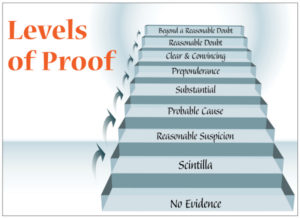
“Reasonable suspicion” of a violation is defined as:
BOTTOM LINE: To initiate a lawful search, a school official or school security officer must have reasonable suspicion to believe all of the following:
- A criminal law or school rule has been or is being violated;
- A particular student or group of students has committed a criminal law or school rule violation;
- The suspected criminal law or school rule violation is of a kind for which there may be physical evidence; and
The sought-after evidence would be found in a particular place associated with the student(s) suspected of committing a criminal law or school rule violation.
The concept of “reasonable suspicion” is based on common sense. A school employee has “reasonable suspicion” if he or she is aware of objective facts and information that — taken as a whole — would lead a reasonable person to suspect that a rule violation has occurred, and that evidence of that infraction can be found in a certain place.
Defining A Student “Search”
A “search,” under Colorado law, is conduct by a school employee that involves intrusion into a person’s protected privacy interests by examining items or places that are not out in the open or exposed to public view.
Some examples of “searches:”
- Examining items or places that are not in the open and exposed to public view.
- Physically examining or patting down a student’s body or clothing, including the student’s pockets.
- Opening and inspecting personal possessions such as purses, backpacks, bags, books, and closed containers.
- Handling or feeling any closed, opaque item to determine its contents when they cannot be inferred by the item’s shape or other publicly exposed physical properties.
- Using any extraordinary means to enlarge the view into closed or locked areas, containers, or possessions, so as to view items not in plain view and exposed to the public.
- Drug testing through urinalysis.
Compare – The Following Are NOT Considered Searches
- Observing an object after a student denies ownership of an object.
- Observing an object abandoned by a student.
- Observing any object in plain view, exposed to the public.
- Peering into car windows, so long as this is done without opening the door or reaching into the vehicle to move or manipulate its contents.
- Detecting anything exposed to the senses of sight, smell or hearing, as long as school officials are located in a place where they have a right to be and extraordinary means were not used to gain a vantage point.
The Definition Of A “Seizure”
There are two basic types of seizures for the purposes of governmental action.
A seizure occurs:
(1) when a school official interferes with a student’s freedom of movement (seizure of a person), or
(2) when a school official interferes with a student’s possessory interest in property (the seizure of an object).
Revisiting Reasonable Suspicion – School Officials Are Treated Differently By The Law Than The Police – School Officials Can Conduct A Search With A Much Lower Quantum Of Evidence
Unless Colorado school officials are acting as agents of the police, school officials and school security officers do not need to establish probable cause to justify the search of a student on school grounds, school buses, and at school events.
Examples Of Fact Patterns That May Justify A Colorado School Search
The following examples may qualify a school official to conduct a search:
- Observed criminal law or school rule violation in progress.
- Observed weapon or portion of weapon.
- Observed illegal item.
- Observed item believed to be stolen.
- Student found with incriminating items.
- Smell of burning tobacco or marijuana.
- Student appears to be under the influence of alcohol or drugs.
- Student admits to criminal law or school rule violation.
- Student fits description of suspect of recently reported criminal law or school rule violation.
- Student flees from vicinity of recent criminal law or school rule violation.
- Student flees upon approach of school official.
- Reliable information provided by others.
- Threatening words or behavior.
- Evidence incriminating one student turned over by another student.
- Student to be searched has history or previous similar violations;
- Student was previously disciplined for a similar infraction or criminal offense; or Student was already subject of investigation for a similar infraction or criminal offense.
- Report of stolen item, including description and value of item and place where item was stolen.
- Student seen leaving area where criminal law or school rule violations are often committed.
- Student became nervous or excited when approached.
- Emergency situations, where school official can provide immediate assistance to avoid serious injury.
Can A Colorado Student Give “Consent” To A Search Without A Parent’s Participation?
The answer to this question is yes – but the consent must be must be “knowing and voluntary.” To prove that a student gave consent the State must prove that he or she had the right to refuse is to inform the student of that right. This consent “waiver” can be oral or printed on a consent-to search form.
BUT, if it can be shown that if in a particular case a school official is actually acting as an agent of the police, any statements made by the student makes may be suppressed at a criminal trial unless a parent or guardian is present and the student is advised of his or her Miranda rights.
Compare – Searches of Students on School Property By Or On Behalf Of Law Enforcement Officers
The Fourth Amendment protects against unreasonable searches and seizures and that to determine reasonableness the need to search must be balanced against the invasion that the search entails, however, it does not protect subjective expectations of privacy that are unreasonable, or otherwise illegitimate.
It is worth repeating that while school officials may conduct student searches based upon reasonable suspicion, police officers must meet the higher standard of probable cause.
When a school official searches a student’s locker, or vehicle at the request of or in cooperation with a law enforcement officer must also have probable cause or a valid search warrant to undertake such a search.
How MUCH Of A Search?
The law is clear in this area, ANY search can be no broader in scope or longer in duration than is reasonably necessary to fulfill its legitimate objective and there must be a logical connection between the thing or place to be searched and the item that is expected to be found there.
One example, a school official’s reasonable suspicion that the student stole a textbook does not justify a search of that student’s clothing, or of containers such as a purse too small to conceal the missing textbook. And reading a diary located in a student’s back pack while searching for drugs would also exceed the scope of a constitutional search.
BUT, a school official with reasonable suspicion to search a student’s locker, the school would be authorized to open and inspect any closed containers or objects that are stored in the locker, provided there are reasonable grounds to believe that the sought-after item could be concealed in the container that is to be opened.
Colorado Criminal Law – Understanding Searches Of Juveniles In Schools
If you found any of the information I have provided on this web page article helpful please click my Plus+1 or the Share buttons for Twitter and Facebook below so that others may also find it.
The contents of this article are based upon my research, my personal experience and my personal analysis and opinions developed from my thirty six years (as of 2017) of criminal trial experience from both sides of the courtroom – as a former career prosecutor for Arapahoe and Douglas Counties (13 years) and as the owner of my own Criminal Defense Law Firm since 1999 (18 years).
The reader is also admonished that Colorado criminal law, like criminal law in every state and at the Federal level, changes constantly. The article appearing above was accurate at the time it was drafted but it cannot account for changes occurring after it was uploaded.
If, after reading this article, you have questions about your case and would like to consider retaining our law firm, we invite you to contact us at the Steinberg Colorado Criminal Defense Law Firm – 303-627-7777.
Never stop fighting – never stop believing in yourself and your right to due process of law. You will not be alone in court, H. Michael will be at your side every step of the way – advocating for justice and the best possible result in your case. H. Michael Steinberg is passionate about criminal defense. His extensive knowledge and experience of Colorado Criminal Law gives him the edge you need to properly handle your case
 ABOUT THE AUTHOR: H. Michael Steinberg – Email The Author at:
ABOUT THE AUTHOR: H. Michael Steinberg – Email The Author at:
A Denver Colorado Criminal Defense Lawyer – or call his office at 303-627-7777 during business hours – or call his cell if you cannot wait and need his immediate assistance – please call 720-220-2277.
“A good criminal defense lawyer is someone who devotes themselves to their client’s case from beginning to end, always realizing that this case is the most important thing in that client’s life.”
You should be careful to make a responsible choice in selecting a Colorado Criminal Defense Lawyer. We encourage you to “vet” our firm. Over the last 36 plus years – by focusing ONLY on Colorado criminal law – H. Michael has had the necessary time to commit to the task of constantly updating himself on nearly every area of criminal law, to include Colorado criminal law and procedure and trial and courtroom practice.
Putting more than 36 years of Colorado criminal defense experience to work for you.
H. Michael works hard to get his clients the best possible results in and out of the courtroom. He has written, and continues to write, extensively on Colorado criminal law and he hopes this article helps you in some small way – Colorado Criminal Law – Understanding Searches Of Juveniles In Schools.
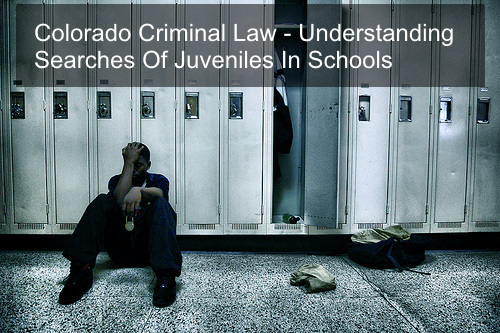
Other Articles of Interest:
- Colorado Juvenile Criminal Law – Dorm Room Searches – Can University Police Search My Dorm Room?
- Colorado Criminal Law – Can The Police Detain Me While A Search Warrant Is Executed?
- Understanding Colorado House Arrest – Home Detention Technology and Procedures
- Colorado Juvenile Criminal Cases – Why Plea Bargaining In Juvenile Criminal Cases Is Different
- Avoiding Colorado Criminal Convictions – The Impact Of A Criminal History On College Applications


